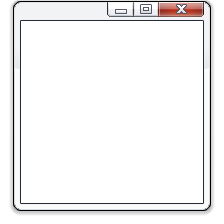Install Steam
login
|
language
简体中文 (Simplified Chinese)
繁體中文 (Traditional Chinese)
日本語 (Japanese)
한국어 (Korean)
ไทย (Thai)
Български (Bulgarian)
Čeština (Czech)
Dansk (Danish)
Deutsch (German)
Español - España (Spanish - Spain)
Español - Latinoamérica (Spanish - Latin America)
Ελληνικά (Greek)
Français (French)
Italiano (Italian)
Bahasa Indonesia (Indonesian)
Magyar (Hungarian)
Nederlands (Dutch)
Norsk (Norwegian)
Polski (Polish)
Português (Portuguese - Portugal)
Português - Brasil (Portuguese - Brazil)
Română (Romanian)
Русский (Russian)
Suomi (Finnish)
Svenska (Swedish)
Türkçe (Turkish)
Tiếng Việt (Vietnamese)
Українська (Ukrainian)
Report a translation problem





The OP's suggestion actually opens up to confusion from people who misread GB and MB, because both would have to be used then and would change depending on the game's size (+1 GB would use GB's, <1GB would use MB's)
That or you end up with games using 0.056 GB, which is just as silly.
Approximately. 1GB=1024MB.
For a 15GB game, it's a difference of 360MB.
A lot? Depends on your connection.
But it's not hard to calculate, just add 2% (for 1020).
15*1000 = 15,000, plus 15*20=300. Now you're only off by 60MB.
Still a lot? Then you shouldn't be downloading a 15GB game in the first place.
Its close enough, anyways its bad to have to worry about that small margin, if your drive is that full it gets fragmented fast and performance suffers, and its bad for your drive, so it shouldn't be something one has to worry about in the first place. That being said if the size is under a gb it should be listed in mb not gb.